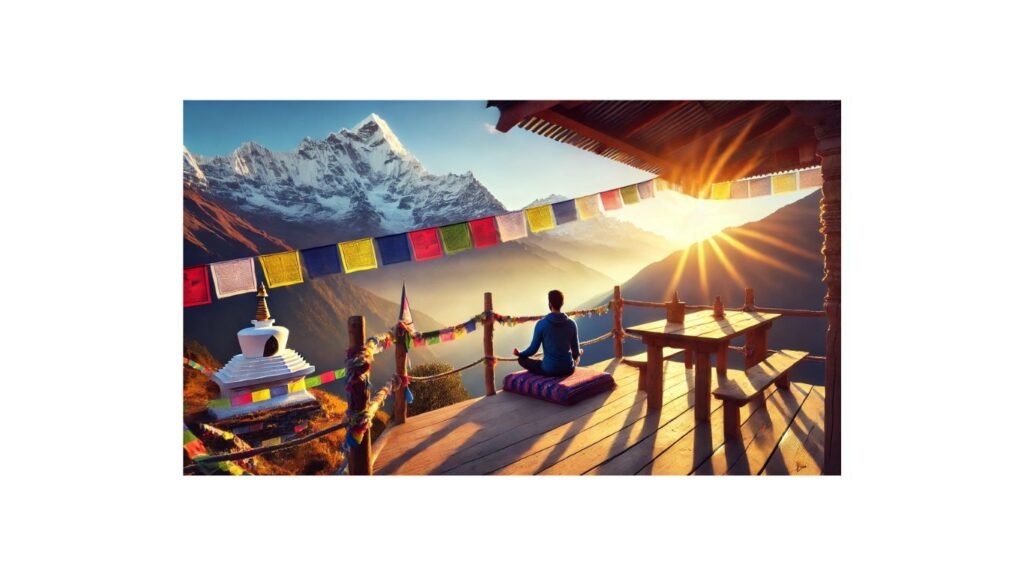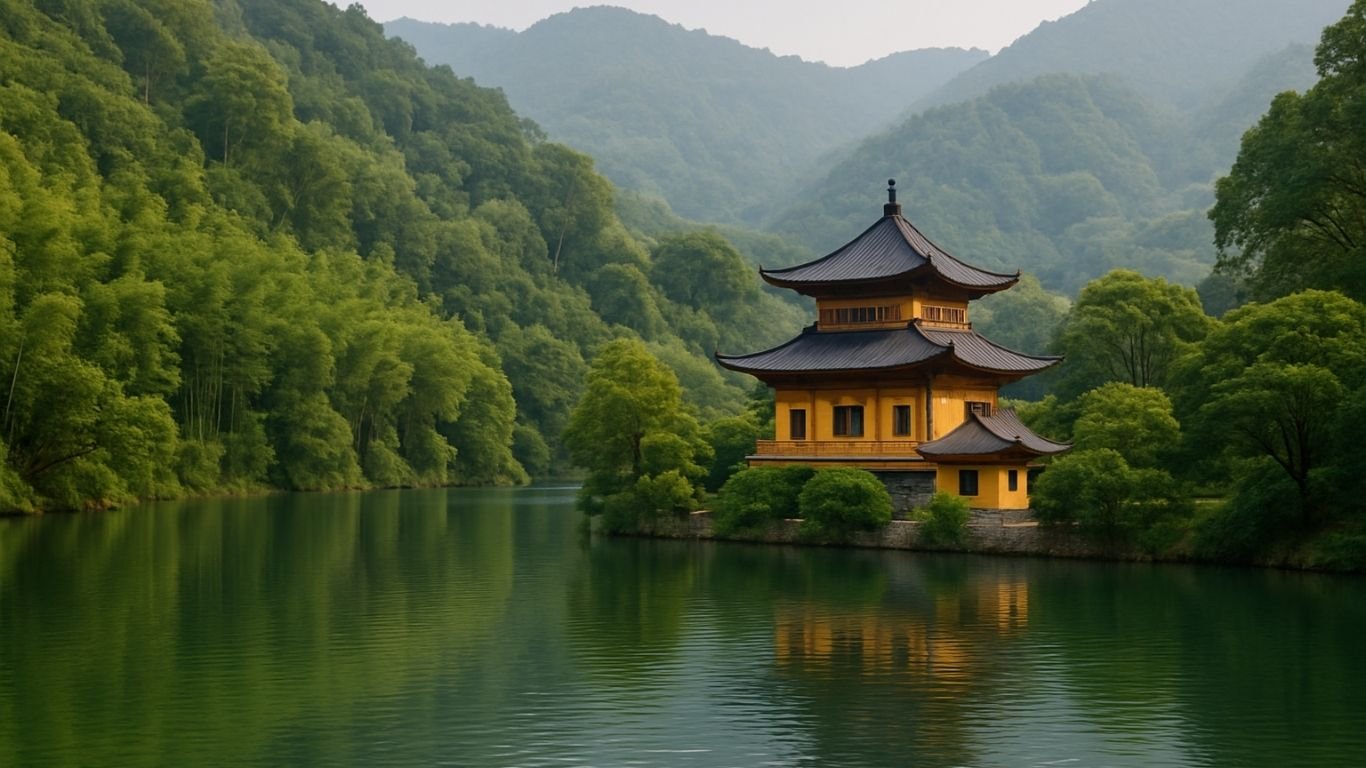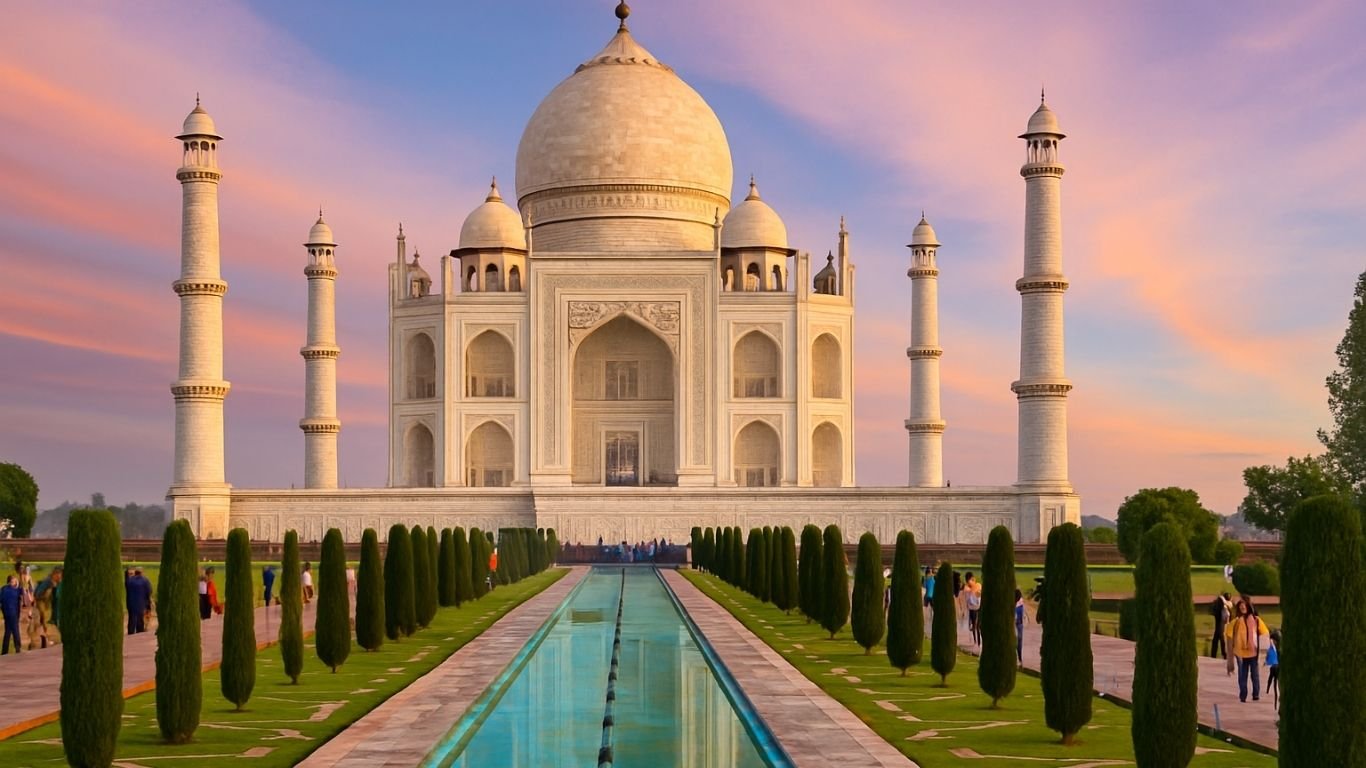Finding Your Inner Peace in Asia
The Growing Appeal of Asian Spiritual Retreats
In a world dominated by hectic schedules and digital distractions, the allure of spiritual retreats in Asia has grown significantly. Asia’s deep-rooted spiritual traditions and serene landscapes offer an authentic escape, attracting individuals seeking profound inner peace and rejuvenation. According to recent statistics from Retreat Guru, Asia has witnessed a notable increase in visitors opting for retreats focused on meditation, yoga, and holistic wellness. Travelers are increasingly recognizing the power of spirituality in counterbalancing the stresses of modern life, turning to Asia’s rich heritage as their preferred destination.
Table of Contents
What Defines a Spiritual Retreat?
A spiritual retreat is a dedicated period of withdrawal from daily life to focus on meditation, self-reflection, and personal growth. Unlike typical holidays, spiritual retreats in Asia typically involve structured activities such as yoga, mindfulness meditation, chanting, or Ayurvedic treatments designed to reconnect the individual with their inner self. These retreats often take place in tranquil settings such as mountains, forests, or near the ocean, providing an environment conducive to relaxation and deep spiritual engagement.
Benefits of Spiritual Retreats for Peace and Relaxation
Spiritual retreats in Asia offer numerous tangible benefits. Participants often experience reduced stress levels, increased mental clarity, emotional healing, and enhanced overall well-being. Retreats help individuals break away from negative thought patterns, providing them with strategies to manage stress more effectively long after their return home. Regular participation in spiritual retreats has also been linked to improved sleep, heightened creativity, and a greater sense of inner peace, creating lasting positive changes in personal and professional life.

Top Destinations for Spiritual Retreats in Asia
Bali, Indonesia – Harmony in Nature and Spirit
Bali has become synonymous with holistic wellness. Particularly in Ubud, you’ll find an array of retreats offering immersive yoga, silent meditation, sound healing, and Balinese purification ceremonies. Institutions like the Yoga Barn and Fivelements Retreat Bali combine sacred rituals with wellness practices, set amid rice terraces and jungle rivers. The island’s spiritual energy, rooted in Balinese Hinduism, infuses every experience with authenticity and depth.
Thailand – A Spiritual Powerhouse of Southeast Asia
Thailand offers some of the most authentic and accessible spiritual retreats in Asia. Wat Suan Mokkh and Wat Pah Nanachat are famed for their 10-day Vipassana retreats, teaching traditional Buddhist insight meditation in silent settings. Meanwhile, Koh Phangan and Chiang Mai host retreat centers like Orion Healing Centre and The Sanctuary, which blend yoga, detox, and spiritual workshops in lush tropical environments. Thai hospitality and Buddhist values make the experience nurturing and inclusive.
India – The Soul of Eastern Spirituality
India remains the spiritual heartland of the world. In Rishikesh—the “Yoga Capital of the World”—retreats like Parmarth Niketan and Sattva Yoga Academy teach traditional yoga, pranayama, and Vedic philosophy by the sacred Ganges. In Kerala, Ayurvedic resorts such as Somatheeram and Kalari Kovilakom offer comprehensive healing through diet, massage, and daily rituals. Dharamsala, home of the Dalai Lama, provides Tibetan Buddhist teachings and serene mountain retreats that cultivate mindfulness and compassion.
Nepal – Stillness in the Shadow of the Himalayas
Nepal offers a spiritual refuge in nature’s grandeur. Meditation centers in Kathmandu and Lumbini—the birthplace of Buddha—blend mindfulness with history. In the Annapurna region, retreats such as the Kopan Monastery provide structured teachings in Mahayana Buddhism, interspersed with nature treks and silent reflection. Nepal’s spiritual gravity and the awe-inspiring landscape create the ideal conditions for transformative inner work.
Bhutan – The Kingdom of Mindful Living
Bhutan integrates spirituality into the fabric of everyday life. Guided retreats at monasteries like the Tango Buddhist Institute emphasize Dzogchen and Mahayana meditation. The country’s emphasis on Gross National Happiness reflects in its spiritually uplifting experiences—whether hiking to the Tiger’s Nest Monastery or attending Buddhist teachings in serene mountain valleys. Bhutan’s controlled tourism ensures that spiritual seekers find unspoiled beauty and deep reverence.
Japan – Zen in the Everyday
Japan offers a refined, minimalist approach to spiritual retreat. In Kyoto and Mount Koya, visitors can stay in temple lodgings (shukubo), join zazen meditation sessions, and participate in tea ceremonies that teach mindfulness in motion. Institutions like the Sanbo-Zen Retreat and Shunkoin Temple offer silent retreats with deep instruction in Zen Buddhism. Japan’s culture of respect, silence, and order deepens the meditative journey.
Sri Lanka – Ayurveda and Ancient Wisdom
Sri Lanka combines spiritual learning with healing through Ayurveda. At retreats like Santani Wellness Resort and Ulpotha, guests experience a blend of yoga, herbal medicine, and meditation, all rooted in ancient Sinhalese and Buddhist traditions. Anuradhapura and Kandy offer spiritual immersion in sacred Buddhist relics, forest monasteries, and rituals that align mind, body, and spirit.
Myanmar – The Heart of Vipassana
Myanmar holds a special place in the global Vipassana tradition. Retreat centers like the International Meditation Centre in Yangon and Mahasi Meditation Center offer intensive, teacher-led Vipassana practice in the tradition of Sayagyi U Ba Khin. Surrounded by golden pagodas and monastic silence, practitioners dive into deep introspection and awareness training. Myanmar’s spiritual atmosphere is potent, reflective, and rooted in ancient practice.

What to Expect at a Spiritual Retreat
Daily Activities and Schedules
Structured daily schedules typically include meditation sessions, yoga classes, group discussions, and personal reflection periods. Activities are thoughtfully designed to maximize spiritual and personal growth while allowing ample time for rest and contemplation.
Types of Spiritual Practices Offered
Most retreats offer a range of practices, including yoga (Hatha, Vinyasa, Yin), meditation (mindfulness, transcendental, Vipassana), chanting, and holistic treatments like Reiki or Ayurvedic massages.
Accommodation and Facilities
Accommodations vary from simple, shared rooms to luxurious private villas. Facilities usually include meditation halls, yoga studios, and tranquil communal areas designed to enhance spiritual practices and community bonding.
Dietary Considerations
Meals at spiritual retreats typically emphasize healthy, organic, and vegetarian or vegan diets. Dietary options support physical cleansing and spiritual clarity, often incorporating locally-sourced, nutritious ingredients.
Preparing for Your Spiritual Retreat
Choosing the Right Retreat for You
Selecting the appropriate spiritual retreat involves considering your personal goals, preferred practices, location, and budget. Research thoroughly to identify retreats that align with your expectations and resonate with your spiritual objectives. Reading reviews and testimonials from past participants can provide valuable insights into what you can expect from different retreats.
Packing Essentials
Pack wisely, considering the specific requirements and conditions of your retreat. Essentials typically include comfortable clothing suitable for yoga and meditation, toiletries, meditation cushions or yoga mats if not provided, a journal for reflections, and any required medications. Remember to pack lightly and practically to maintain simplicity and ease.
Cultural Sensitivity and Respect
Understanding and respecting the local customs and traditions of your chosen destination is crucial. Be mindful of dress codes, etiquette during religious ceremonies, and local dietary practices. Engaging respectfully with local communities enhances your overall retreat experience and fosters meaningful connections.
Setting Intentions and Expectations
Before embarking on your retreat, clearly define your intentions and expectations. Establishing personal objectives helps you maximize the benefits of your retreat experience. Keep an open mind and embrace the journey with patience and curiosity, allowing yourself to fully engage with each moment and activity.

Post-Retreat Integration and Maintaining Peace
Bringing the Retreat Experience Home
Successfully integrating your retreat experience into daily life involves consciously applying lessons learned during your retreat. Practice mindfulness, meditation, or yoga regularly to maintain the sense of peace and clarity achieved during the retreat.
Incorporating Spiritual Practices into Daily Life
Make spiritual practices a part of your daily routine to sustain long-term benefits. Even short, daily sessions of meditation or mindful breathing can significantly enhance your well-being and help manage stress effectively.
Sustaining Peace and Relaxation
Maintaining a calm and peaceful state requires ongoing effort and intention. Regular self-reflection, journaling, and periodic retreats can reinforce your spiritual growth and keep stress at manageable levels. Staying connected with a community of like-minded individuals can also provide continuous support and motivation.
Conclusion: Embracing Your Spiritual Journey in Asia
Embarking on a spiritual retreat in Asia can be a transformative experience, offering profound peace, healing, and rejuvenation. By carefully selecting a retreat that aligns with your personal and spiritual goals, engaging respectfully with local traditions, and diligently incorporating practices into your daily life, you can sustain the peace and clarity gained. Asia’s rich spiritual traditions and serene landscapes await your exploration, inviting you to embark on a journey of inner discovery and lasting tranquility.
FAQ
What is the best time of year to attend a spiritual retreat in Asia?
The ideal time varies by country. For example, India and Nepal are best from October to March, while Southeast Asia (Thailand, Bali) is ideal from November to April. Always check the local climate and festival calendar.
Do I need prior experience in meditation or yoga?
No. Most retreats welcome beginners and offer guided sessions for all levels. Advanced retreats are also available for those with experience.
How long should a spiritual retreat last?
Retreats typically range from 3 days to several weeks. A 7-10 day retreat is often ideal for deep immersion without being overwhelming.
Are spiritual retreats religious?
Not necessarily. While some are rooted in specific traditions like Buddhism or Hinduism, many are non-denominational and focus on personal growth, mindfulness, and well-being.
What should I bring to a spiritual retreat?
Comfortable clothing, toiletries, a journal, meditation cushion or mat (if not provided), and an open mind. Minimalism is encouraged to help you disconnect and focus inward.
Is it safe to travel alone for a retreat?
Yes. Most spiritual retreat centers in Asia are safe, and solo travelers are common. It’s wise to research the center’s reputation, read reviews, and inform someone of your itinerary.
How much do retreats typically cost?
Costs vary greatly. Budget retreats in monasteries may cost under $20/day, while luxury wellness resorts can exceed $500/day. Choose based on your needs, not just price.
Can I attend a retreat with dietary restrictions?
Most retreats offer vegetarian or vegan meals and accommodate dietary needs if informed in advance. Always check with the retreat organizers beforehand.
Will I have access to Wi-Fi or my phone during the retreat?
Most retreats encourage digital detox. Some offer limited Wi-Fi, while others enforce complete disconnection to enhance mindfulness and presence.

